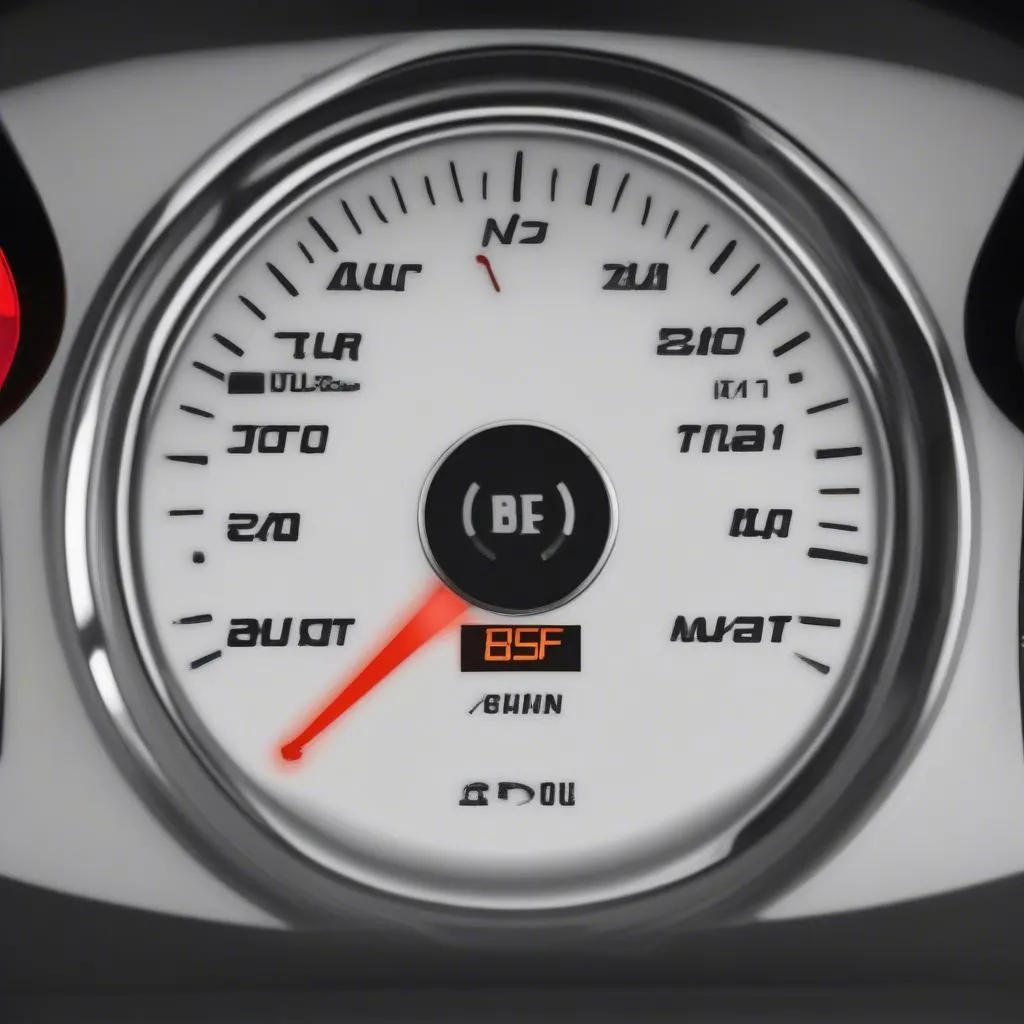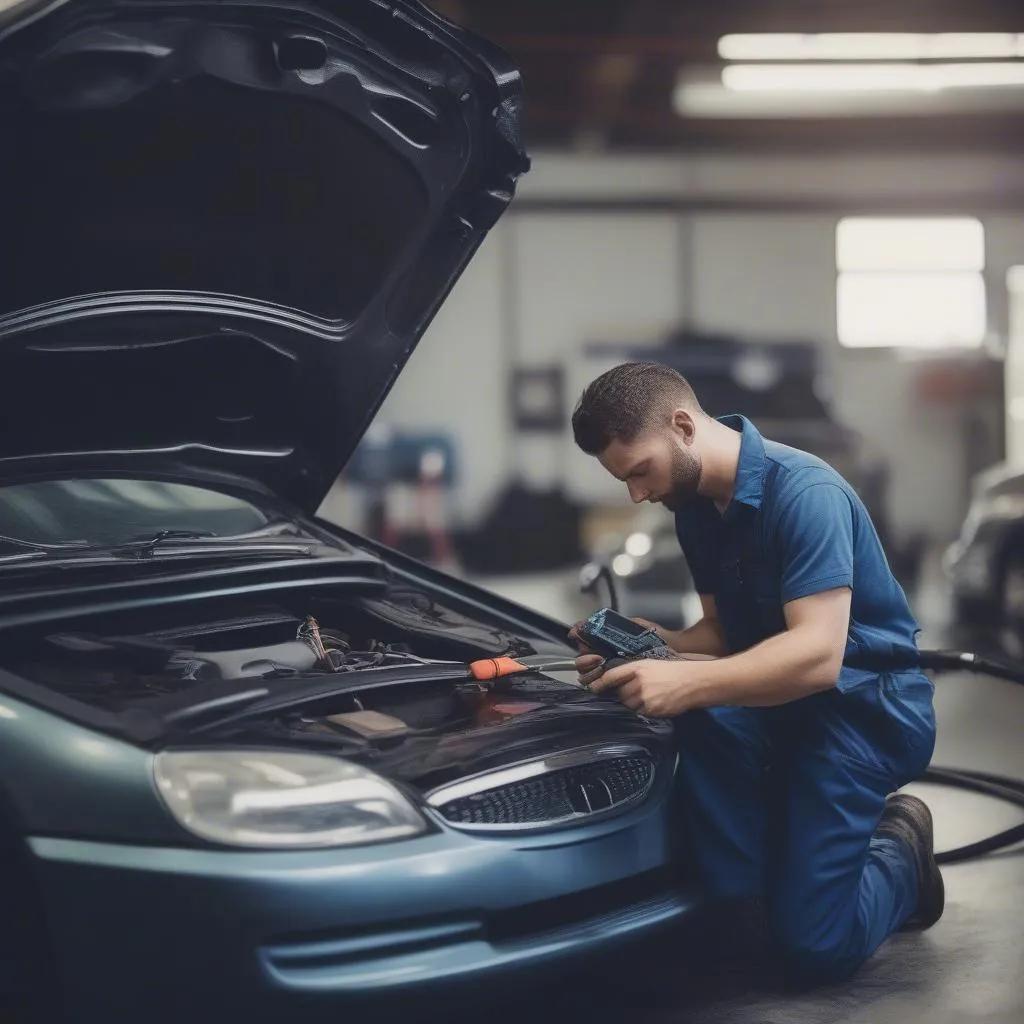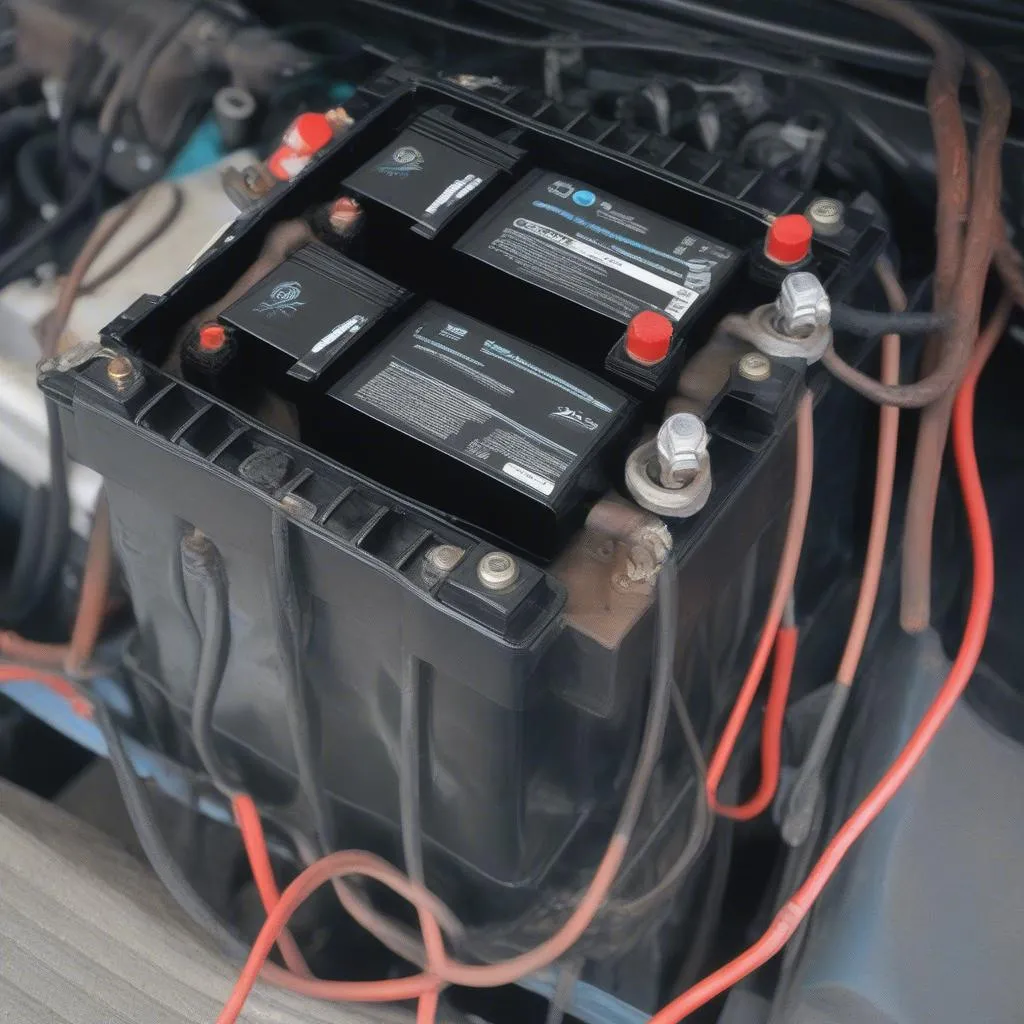Imagine this: you’re rushing to work, keys in hand, ready to conquer the day. You turn the key, the engine sputters, but the car refuses to start. That familiar check engine light glows menacingly on the dashboard. You’re stuck, frustrated, and unsure where to start.
We’ve all been there. The dreaded “check engine light” can be a real pain, especially when it’s coupled with your car refusing to cooperate. It’s a situation that can leave you feeling helpless and confused. But don’t panic! This article will guide you through the potential causes of a check engine light and a car that won’t start, helping you understand what might be wrong and how to address it.
What Does it Mean When My Check Engine Light Is On and My Car Won’t Start?
The “check engine light” isn’t just a flashing light on your dashboard; it’s a signal from your car’s onboard computer, telling you that something is amiss. It’s like a little red flag saying, “Hey, there’s a problem, and it’s time to investigate!”
From a technical standpoint, the check engine light illuminates when the car’s Electronic Control Unit (ECU) detects a malfunction in one or more of the car’s critical systems. This could involve anything from a faulty sensor to a more serious issue.
For car owners, the “check engine light” is a sign that something needs attention. You can’t just ignore it.
In the context of economics, an unexpected car repair can be a financial blow.
Why Won’t My Car Start?
Now let’s dive into the possible reasons behind why your car won’t start when the check engine light is on:
1. Fuel System Problems:
Fuel Pump Issues
A faulty fuel pump can prevent fuel from reaching the engine, leading to a no-start condition. The fuel pump is responsible for drawing fuel from the tank and delivering it to the engine.
Fuel Filter Clogging
A clogged fuel filter restricts fuel flow, potentially causing engine problems. The filter prevents debris from entering the engine, but over time, it can become clogged.
2. Electrical Problems:
Faulty Battery
A dead or failing battery can prevent the engine from starting. The battery provides the initial spark to ignite the engine.
Spark Plug Issues
Worn-out spark plugs can cause misfires and difficulty starting. Spark plugs ignite the air-fuel mixture in the engine cylinders.
Cables and Connections
Loose or corroded cables and connections in the electrical system can interrupt the flow of current, affecting the car’s ability to start.
3. Ignition System Issues:
Distributor Problems
The distributor, if equipped, distributes electrical current to the spark plugs. A faulty distributor can cause starting issues.
Ignition Coil Malfunction
The ignition coil generates the high-voltage spark that ignites the fuel. A malfunctioning coil can prevent the engine from starting.
What Should I Do if My Check Engine Light is On and My Car Won’t Start?
Here are some steps you can take if your check engine light is on and your car won’t start:
-
Safety First: Before attempting any repairs, ensure your vehicle is parked in a safe location. Don’t work on the car under an open hood, especially if you’re not a mechanic. There’s always a chance of electrical shock or other hazards.
-
Check Your Battery: Use a multimeter to check the battery’s voltage. It should be at least 12 volts. If the battery is dead or low, you’ll need to jump-start it or replace it.
-
Inspect the Fuel System: Check the fuel filter to see if it’s clogged. If it is, replace it.
-
Examine Spark Plugs: Look for signs of wear and tear on the spark plugs. If they are worn, replace them.
-
Look for Loose Connections: Examine the cables and connections in the electrical system for any loose or corroded spots. Tighten or clean them as needed.
-
Consider Professional Help: If you’re not comfortable troubleshooting the issue yourself, it’s best to consult a qualified mechanic. They can use diagnostic tools to identify the problem and fix it for you.
-
OBD Scanner: You might want to invest in an OBD (On-Board Diagnostics) scanner, which can read the fault codes stored in your car’s ECU.
Frequently Asked Questions (FAQs)
Why Does My Check Engine Light Keep Coming On?
The check engine light can come on for many reasons, some of which are more serious than others. Common causes include:
- Faulty Oxygen Sensor: The oxygen sensor monitors the exhaust gases and alerts the ECU to any problems.
- Loose Gas Cap: A loose gas cap can cause a leak in the fuel system, triggering the check engine light.
- Catalytic Converter Issues: The catalytic converter reduces emissions. A damaged or failing catalytic converter can trigger the check engine light.
- Faulty Mass Airflow Sensor: The mass airflow sensor measures the amount of air entering the engine. If it fails, the engine won’t run properly.
How to Fix a Check Engine Light?
The best way to fix a check engine light depends on what’s causing it. First, you’ll need to read the fault codes using an OBD scanner. Then, based on the codes, you can address the underlying problem.
Can I Drive With My Check Engine Light On?
It’s not recommended to drive with the check engine light on. While it may not be a major issue in the short term, it can be a sign of a larger problem that can worsen if ignored.
What Does a Blinking Check Engine Light Mean?
A blinking check engine light is a serious issue that requires immediate attention. It usually indicates a misfire, which can damage your catalytic converter.
The Takeaway
The check engine light and a car that won’t start can be frustrating, but with the right information and a little troubleshooting, you can address the issue. If you’re not sure where to begin, consult a mechanic.
We encourage you to share your experiences with the check engine light in the comments below. Has this happened to you? What did you do to fix it?
 check engine light
check engine light
 mechanic
mechanic
 car battery
car battery
Don’t forget to reach out to us via Whatsapp: +84767531508 if you need help with diagnostics tools or want to discuss your car’s problems with one of our expert mechanics, available 24/7.
Note: Remember, this article is for informational purposes only. We recommend consulting a qualified mechanic for any automotive repairs.